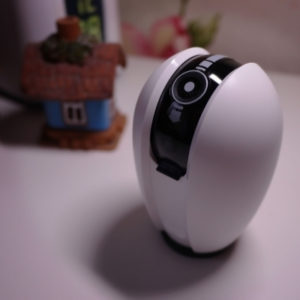Do yourself a favor: DON’T record your ex
 Recently the consumer market has seen a surge in home surveillance systems marketed for in-home use. Many of these systems have the capability to record both video and audio, and feature a speaker for you to talk to the person you see in the video through the device. But parties to a divorce or custody case may want to think twice about using these systems to capture recordings for their case.
Recently the consumer market has seen a surge in home surveillance systems marketed for in-home use. Many of these systems have the capability to record both video and audio, and feature a speaker for you to talk to the person you see in the video through the device. But parties to a divorce or custody case may want to think twice about using these systems to capture recordings for their case.
Such recordings can hurt your case and land you in jail
What started with the nanny cam, now includes recordings from doorbells. With the rise of home surveillance systems, litigants may be tempted to use these systems to try to gain an advantage in their divorce or custody case. The party hopes to catch the other doing embarrassing or unflattering acts, thinking it will help them gain an advantage in court. These recordings end up actually hurting your case, and they could land you in jail.
“In Florida, it is a felony to take audio recordings of another person in a private place without that person’s consent,” says Fort Myers criminal defense attorney Spencer Cordell. He adds, “so using your home surveillance equipment to record the spouse you are divorcing or the other parent without them knowing may end up causing you to be looking at time in jail. The person who was recorded may also be able to sue for money damages.”
Litigants may also be tempted to access the other parties’ home surveillance system through the online account, either by knowing the account password information from previously living in the home or by guessing a changed password. But intercepting those recordings in that way is also illegal.
View from the bench
Even if a recording is legally made, people who then try to play these videos in court can find that judges view this behavior as negative conduct of the person who was doing the recording. When it comes to custody cases, judges are evaluating what is in the best interests of the child when making custody decisions. A parent who is secretly recording their child’s interactions with the other parent, or recording what their child says to them about the other parent, is not a behavior judges condone or encourage. The result may end up giving major decision making authority to the other parent and even leading to supervised time-sharing between the parent who was recording and their children.
If you are involved in a divorce or custody case, you should check with your attorney before you press that record button.

